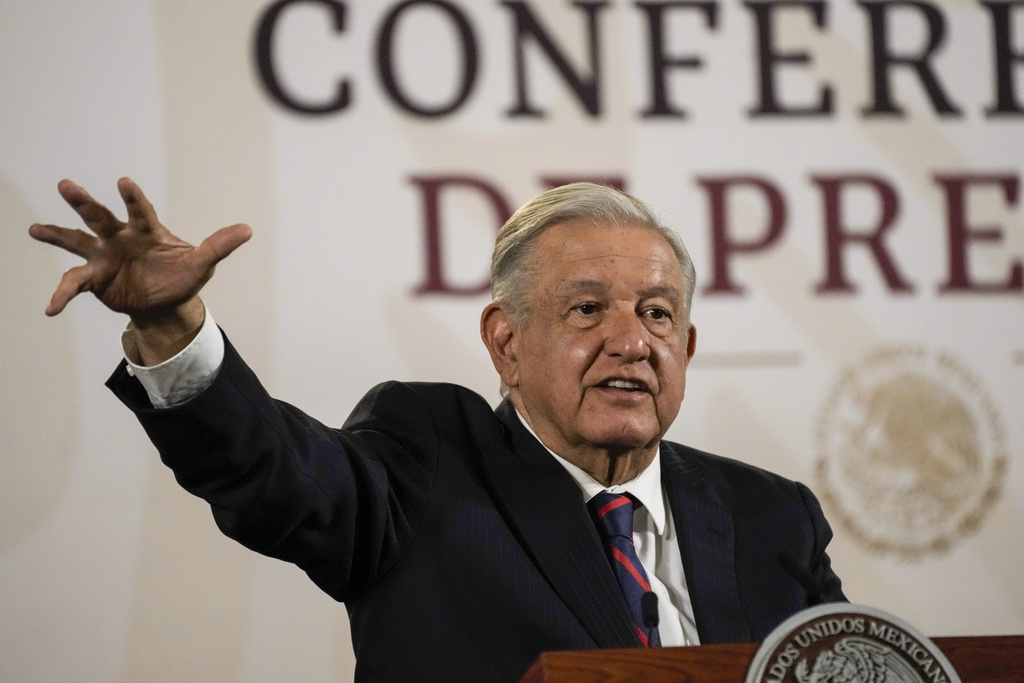Vulcan rejects Mexico's buyout offer, say president's plan hurts the environment
MEXICO CITY (AP) — Birmingham-based Vulcan Materials on Monday rejected the Mexican president’s campaign of criticisms and closures, as well as his offer to buy its property on the Caribbean coast. In July, President Andrés Manuel López Obrador offered to buy the American company’s Caribbean coast property for about $385 million amid a bitter, years-long dispute that […] Birmingham-based Vulcan Materials has rejected Mexican President Andrés Manuel López Obrador's offer to buy its Caribbean coast property for $385 million. The company claims that the offer undervalues its assets and represents a significant devaluation of its assets. The property, which is valued at $1.9 billion, is part of a dispute between Vulcan and Mexico, which saw Mexican authorities breach the gates at Vulcan's port quarry. Lópe Obrado has previously threatened to expropriate the property, claiming that the pits it has dug to extract crushed limestone have damaged underground caves, cenotes or archaeological sites. However, Vulcan Materials denies these claims. The president's office had no immediate reaction to Vulcan's allegations.

Published : one year ago by Associated Press in Environment
MEXICO CITY (AP) — Birmingham-based Vulcan Materials on Monday rejected the Mexican president’s campaign of criticisms and closures, as well as his offer to buy its property on the Caribbean coast.
In July, President Andrés Manuel López Obrador offered to buy the American company’s Caribbean coast property for about $385 million amid a bitter, years-long dispute that saw Mexican authorities breach the gates at Vulcan’s port quarry
Vulcan said in a statement Monday that the offer “substantially undervalues our assets.”
In papers filed on the case in an international arbitration panel, Vulcan Materials valued the almost 6,000-acre (2,400 hectare) property, located just south of the resort town of Playa del Carmen, at $1.9 billion.
The Mexican president has in the past threatened to expropriate the extensive property, claiming the pits it has dug to extract crushed limestone have damaged the fragile system of underground rivers and caves in the area.
But Vulcan Materials rejected the charge. “Our operations have not adversely affected underground caves, cenotes or archaeological sites. In fact, we have mapped, protected and preserved these valuable resources,” the company said in a statement.
Instead, the company alleged that some other quarries in the area have been operating unlawfully. “Unlike other quarrying sites that have been operating unlawfully to supply the Mayan Train, our operations were duly permitted,” the company said.
The Mayan Train is a pet project of López Obrador to build a tourist train around the Yucatan peninsula. Activists, cave divers and archeologist say the project has damaged the caves, which hold some of the oldest human remains in North America.
The president’s office had no immediate reaction to Vulcan’s allegations.
Alabama’s congressional delegation has been outspoken in its criticism of Mexico’s tactics, with Sen. Katie Britt traveling to Mexico City last year to meet with the country’s foreign secretary.
“If Vulcan’s land and port are seized, we will be forced to consider all available remedies at our disposal to ensure no entity or individual benefits from the theft of this property,” Britt and Sen. Tommy Tuberville wrote in a joint letter to Foreign Secretary Alicia Bárcena earlier this month.
López Obrador has said in the past that the most attractive part of the property was the company’s freight shipping dock — the only deep port on the coast’s mainland — which he plans to turn into a dock for cruise ships. He says he wants to turn the rest of the property into a natural reserve.
“The Mexican government is using these political threats and false allegations to try to justify converting our property into a “naturally protected area,” which could — ironically — be used not to protect the environment but for commercial tourism purposes and naval operations, including cruise ship activity”, the company said.
López Obrador said he also wants to use the flooded pits that the company dug out of hundreds of acres of the limestone soil as “swimming pools” or an “ecotourism” area that would be operated as a concession by a private operator.
The huge pits are inhabited by crocodiles, which are a protected species in Mexico.
The company’s dock at Punta Venado is the only one in the area that can handle cement, crushed stone and other shipments for the Maya Train. The 950-mile (1,500-kilometer) Maya Train line is meant to run in a rough loop around the Yucatan Peninsula, connecting beach resorts and archaeological sites.
López Obrador touts the train as a way to bring some of Cancun’s tourism income to inland communities that haven’t shared in the wealth. But there are no credible feasibility studies showing tourists would want to use the train.
Topics: ESG
